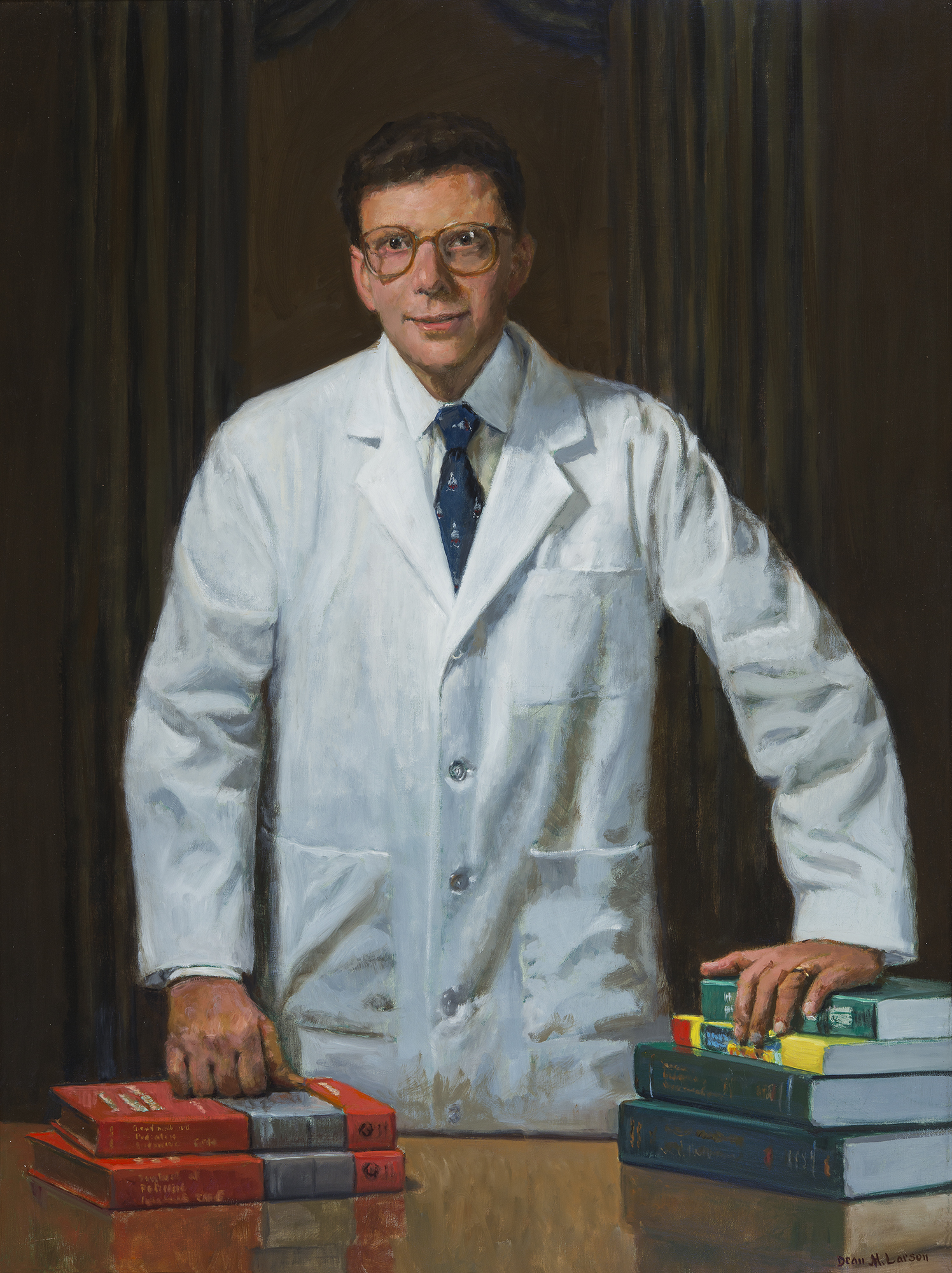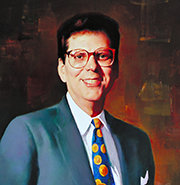Mark Charles Rogers

Mark Charles Rogers
- Artist:
- Dean M. Larson
- Date:
- 2015
- Medium:
- Oil on canvas
- Dimensions:
- 31 x 40 in.
Mark Charles Rogers
1942-
Rogers, a chief of anesthesiology at Johns Hopkins, was born in New York City. He earned his bachelor’s degree from Columbia University in 1964 and his M.D. from Upstate Medical Center, part of the State University of New York, in 1969.
After completing an internship in pediatrics at Massachusetts General Hospital in Boston, Rogers was a pediatric resident at Children’s Hospital Medical Center of Boston, a fellow in pediatric cardiology at Duke University Medical Center, an anesthesia resident at Massachusetts General Hospital, and clinical fellow in anesthesia and pediatrics at Harvard Medical School. From 1975 to 1977, Rogers was a major in the United States Army Medical Corps and director of the newborn service at Ireland Army Hospital in Fort Knox, Kentucky. He was also a clinical associate professor of pediatrics and anesthesia at the University of Louisville Medical School in Kentucky.
Rogers arrived at Johns Hopkins in 1977 to become director of the Pediatric Intensive Care Unit after training in pediatrics, cardiology, anesthesiology and critical care medicine. In 1980, he was named professor and chair of the newly created Department of Anesthesiology and Critical Care Medicine. Leading the department for the next twelve years, Rogers propelled both the department and the Pediatric Intensive Care Unit to the forefront of medicine in the United States. His textbook in pediatric intensive care is used throughout the world and is now names after him. A former Fulbright Scholar, he headed the Fulbright selection committee from 1987 to 1988. He also has chaired the United States Congress advisory committee to the Food and Drug Administration and the Reagan Udall Foundation.
Rogers left Johns Hopkins in 1992 at which time Johns Hopkins established the endowed chair named for him. He next served as vice chancellor for health affairs at Duke University Medical Center and as executive director and chief executive officer at Duke Hospital and Health Network. He next became a senior executive of the firm that sequenced the human genome, head of a major biotech investment bank and a founder of multiple public biopharmaceutical companies. Rogers is a member of the National Academy of Medicine of the National Academy of Sciences.
Additional Portrait(s) of Mark Charles Rogers
"*" indicates required fields

